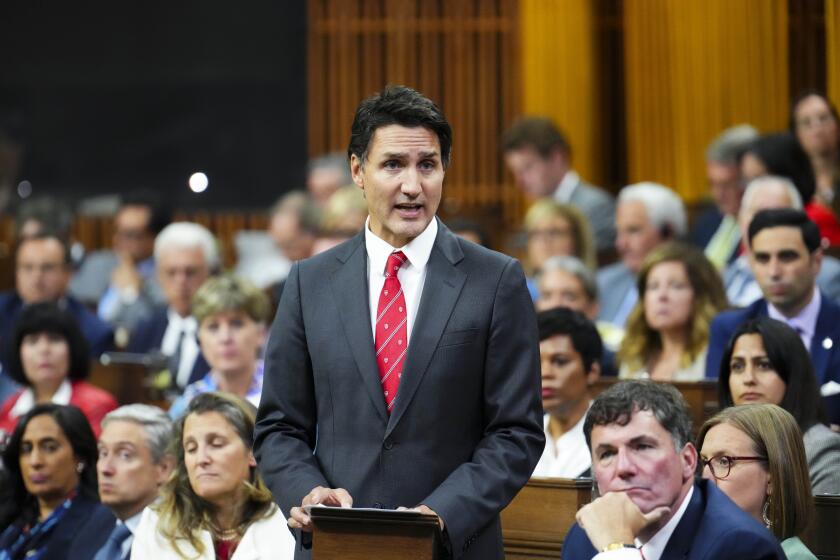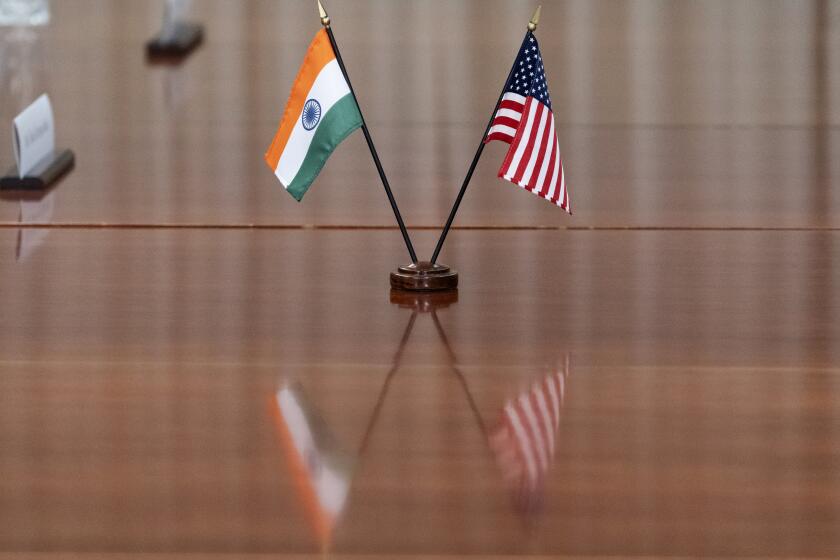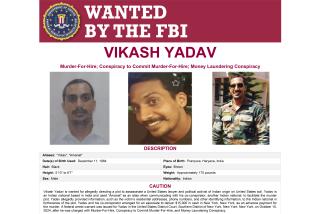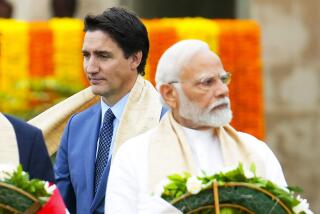Canadian police arrest 3 in Sikh separatist’s slaying that sparked diplomatic spat with India

VANCOUVER, British Columbia — Canadian police said they arrested three suspects Friday in a Sikh separatist leader‘s slaying last June that became the center of a diplomatic spat with India, and are investigating possible ties between the detainees and the Indian government.
Three Indian nationals in their 20s, identified as Kamalpreet Singh, Karan Brar and Karampreet Singh, were arrested in Edmonton, Alberta, on Friday morning in the slaying of 45-year-old Hardeep Singh Nijjar. He was shot down by masked gunmen outside Vancouver, police said.
Canadian Prime Minister Justin Trudeau sparked a diplomatic feud with India in September when he said that there were “credible allegations” that India was involved in Nijjar’s death.
India had accused Nijjar of links to terrorism, but angrily denied involvement in the slaying. In response to Trudeau’s allegations, Indian officials told Canada last year to remove 41 of its 62 diplomats from the country. Tensions remain but have somewhat eased since.
A Sikh temple in Stockton is a key part of a movement to form a breakaway republic thousands of miles away in India.
The three suspects had been living in Canada as nonpermanent residents, Royal Canadian Mounted Police Supt. Mandeep Mooker said Friday at a news conference in Toronto.
“We are investigating whether there are any ties to the government of India,” Mooker said.
Assistant Police Commissioner David Teboul said Canadian authorities are speaking with counterparts in India.
“I would characterize that collaboration as rather challenging,” he said. “It’s been very difficult.”
Prime Minister Justin Trudeau says Canada is investigating whether India is linked to the assassination of a Sikh Canadian citizen in British Columbia.
The three men were expected to be transported to British Columbia by Monday to face charges of first-degree murder and conspiracy to commit murder.
Nijjar, an Indian-born citizen of Canada, was a plumber and also a leader in what remains of a once-strong movement to create an independent Sikh homeland, known as Khalistan. But he had denied allegations of ties to terrorism.
A bloody decade-long Sikh insurgency shook north India in the 1970s and 1980s, until it was crushed in a government crackdown in which thousands of people were killed, including prominent Sikh leaders.
U.S. authorities have announced murder-for-hire charges against an Indian man who they say plotted to assassinate a U.S. citizen in New York City.
The Khalistan movement has lost much of its political power but still has supporters in the Indian state of Punjab, as well as in the sizable overseas Sikh diaspora. While the active insurgency ended years ago, the Indian government has warned repeatedly that Sikh separatists are trying to make a comeback.
Separatists in the diaspora, including in California, say their efforts are limited to peaceful protest and referendums to show support for an independent Khalistan.
Giillies and Morris write for the Associated Press. Los Angeles Times staff contributed to this report.
More to Read
Sign up for Essential California
The most important California stories and recommendations in your inbox every morning.
You may occasionally receive promotional content from the Los Angeles Times.













